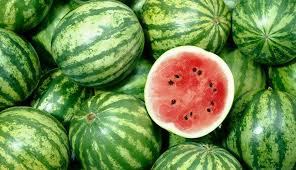Watermelon Seeds
Watermelon is one of the delicious and refreshing fruit that's also good for you. Most of us enjoy taking watermelon but some people hate the seeds, they separate the seeds in the watermelon, only enjoy drinking the juice.Watermelon contains only 46 calories per cup, but is high in vitamin C, vitamin A and many healthy plant compounds.
Interestingly, watermelon is 92% water. A high water content is one of the reasons that fruits and vegetables help you feel full. Watermelon is a combination of water and fiber, when you're taking watermelon, it means you're eating a good volume of food without a lot of calories.
Today I am going to base the topic on the important and nutrients gotten from watermelon 🍉 seeds.
How much nutrition you can get from watermelon seeds depends largely on how many you eat. Watermelon seeds are small, you need to eat quite a few to get their considerable benefits. However, when drinking the juice eat the seeds as well.
Healthy Minerals in Watermelon Seeds
- Magnesium
One of several minerals found in watermelon seeds is magnesium. In a 4 gram serving, you’ll get 21 mg of magnesium. Adults are recommended to get 400mg of Magnesium on daily basis. Magnesium is essential for many of the body’s metabolic functions. It’s also required to maintain nerve and muscle function, as well as immune, heart, and bone health.


Comments
Post a Comment
Drop Your Comments Below